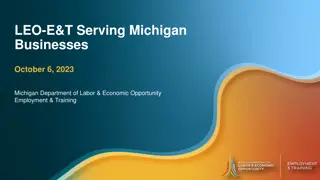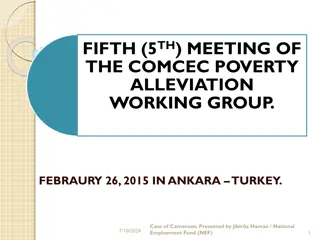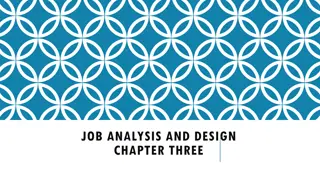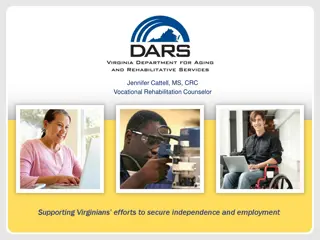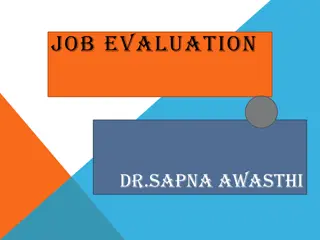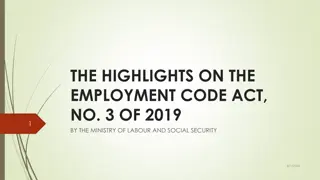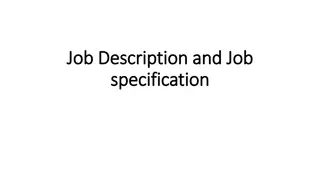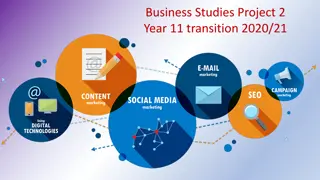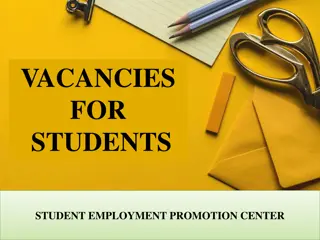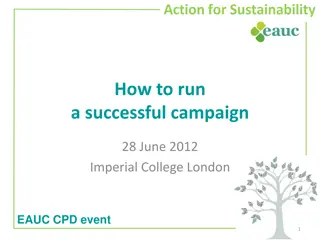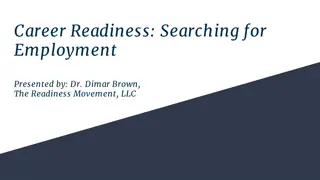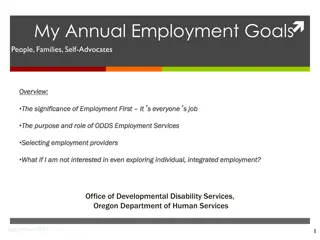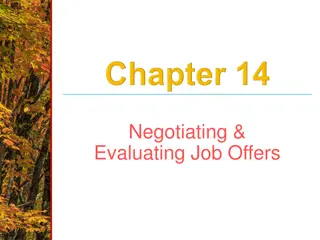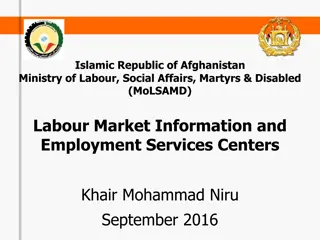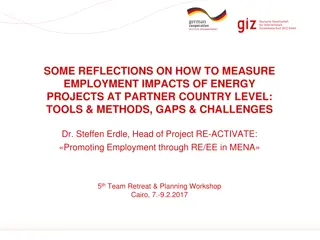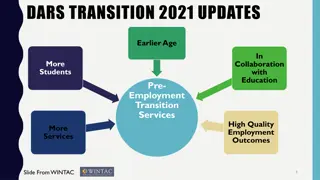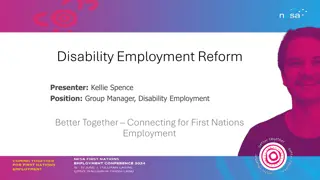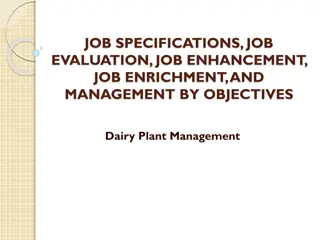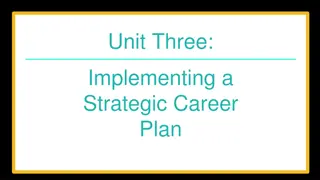Mastering Job Campaigns for Successful Employment
Discover the ins and outs of launching an effective employment campaign, from understanding the nature of job campaigns to exploring the history of job-hunting methods. Learn about important aspects like employer perspectives, job-hunting myths, and the significance of an active approach in job campaigns. Explore strategies for contacting employers, setting goals, evaluating offers, and more. Uncover the secrets to job-hunting success and enhance your chances of securing the best job offer.
Download Presentation

Please find below an Image/Link to download the presentation.
The content on the website is provided AS IS for your information and personal use only. It may not be sold, licensed, or shared on other websites without obtaining consent from the author.If you encounter any issues during the download, it is possible that the publisher has removed the file from their server.
You are allowed to download the files provided on this website for personal or commercial use, subject to the condition that they are used lawfully. All files are the property of their respective owners.
The content on the website is provided AS IS for your information and personal use only. It may not be sold, licensed, or shared on other websites without obtaining consent from the author.
E N D
Presentation Transcript
Launching an Employment Campaign
Presentation Overview Nature of job campaigns History of job-hunting methods Employment for college graduates Employers view of job campaigns Job hunting myths CIP perspective on job hunting
What is a Job Campaign? Doing a personal assessment Contacting employers Interviewing with employers Identifying goals/objectives Making onsite visits Targeting potential employers Maintaining a record- Considering alternative work keeping system settings/ways of working Evaluating offers Choosing the best offer Preparing letters and resumes
Job Campaigns Importance of an active approach what does this mean? What are some life events that can lead to persons starting a job campaign? How is job hunting like having a job? Time commitment needed
History of Job-Hunting Methods Frank Parsons Best & worse ways to job hunt Networking & the hidden job market What Color is Your Parachute? Internet s impact on job hunting Research on job hunting what have we learned from this?
Employment for College Graduates Jobs and well-being Where jobs are found visibility of small vs. large employers Staffing services industry Deciding about working in this industry see Table 11.1 Tips for job hunting in staffing services industry see Table 11.2
Employment for College Graduates Factors in college job search success Majors, jobs, and salaries what does the research say? Importance of skills valued by employers how might this information relate to your transferable skills?
Employer Recruiting & Hiring Strategies Understand recruiting strategies used by employers Challenges faced by employers Using campus resources to be successful in one s job campaign Know candidate characteristics valued by employers
Employer Views of Your Job Campaign Gain Experience How How many of many of these can these can you check you check off? off? Create Connections First Impressions Be a Professional Be Prepared Be Persistent Be Realistic, Open-Minded, & Flexible
Four Job-Hunting Myths Wallflower Syndrome Avoid these Avoid these by using a by using a more more proactive proactive job hunting job hunting approach approach Lone Ranger Syndrome Looking Under the Light I ll Do Anything
CIP Perspective on Job-Hunting Self-Knowledge Values Interests Skills Share Share examples examples of these of these How does your self-knowledge relate to the types of jobs you will seek? What other aspects of self-knowledge might be important in job hunting?
CIP Perspective on Job-Hunting Option Knowledge Knowledge of specific employers: job titles employment classifications & industrial categories
CIP Perspective on Job-Hunting Option Knowledge How do geographic preferences impact your options? How do potential employment options affect the following: future education? leisure? family?
CASVE Cycle in the Job Campaign Communication Awareness of a gap Internal and external cues what are some of these?
CASVE Cycle in the Job Campaign Analysis Reflecting on self- and option knowledge Understanding how you make important decisions related to employment Influence of self-talk on the job search
CASVE Cycle in the Job Campaign Synthesis Expanding and narrowing employment options What resources can help you expand your list of possible employers? What factors will you use to narrow that list?
CASVE Cycle in the Job Campaign Valuing Prioritizing employment options Consider self-knowledge and employment preferences Weigh costs and benefits to self, significant others, cultural group, community, society at large Ranking options may be job targets or job offers
CASVE Cycle in the Job Campaign Execution Actions taken to pursue employment or implement employment choice Developing job search tools Develop record-keeping system If executing job offer choice, completing remaining steps in hiring process
Thoughts in the Job Campaign Self-Talk How might negative self-talk impact your job campaign? What are What are some tips to some tips to help the help the job search job search process go process go better? better? Self-Awareness Awareness of how well you are executing job hunting tasks, your feelings, thoughts, behaviors Reactions from friends and significant others Monitoring and Control Knowing next steps in the job campaign When to move on and when to ask for help
Summary Steps in an active job campaign Importance of understanding what employers want Consider how CIP Pyramid and CASVE cycle can be used in your job search


